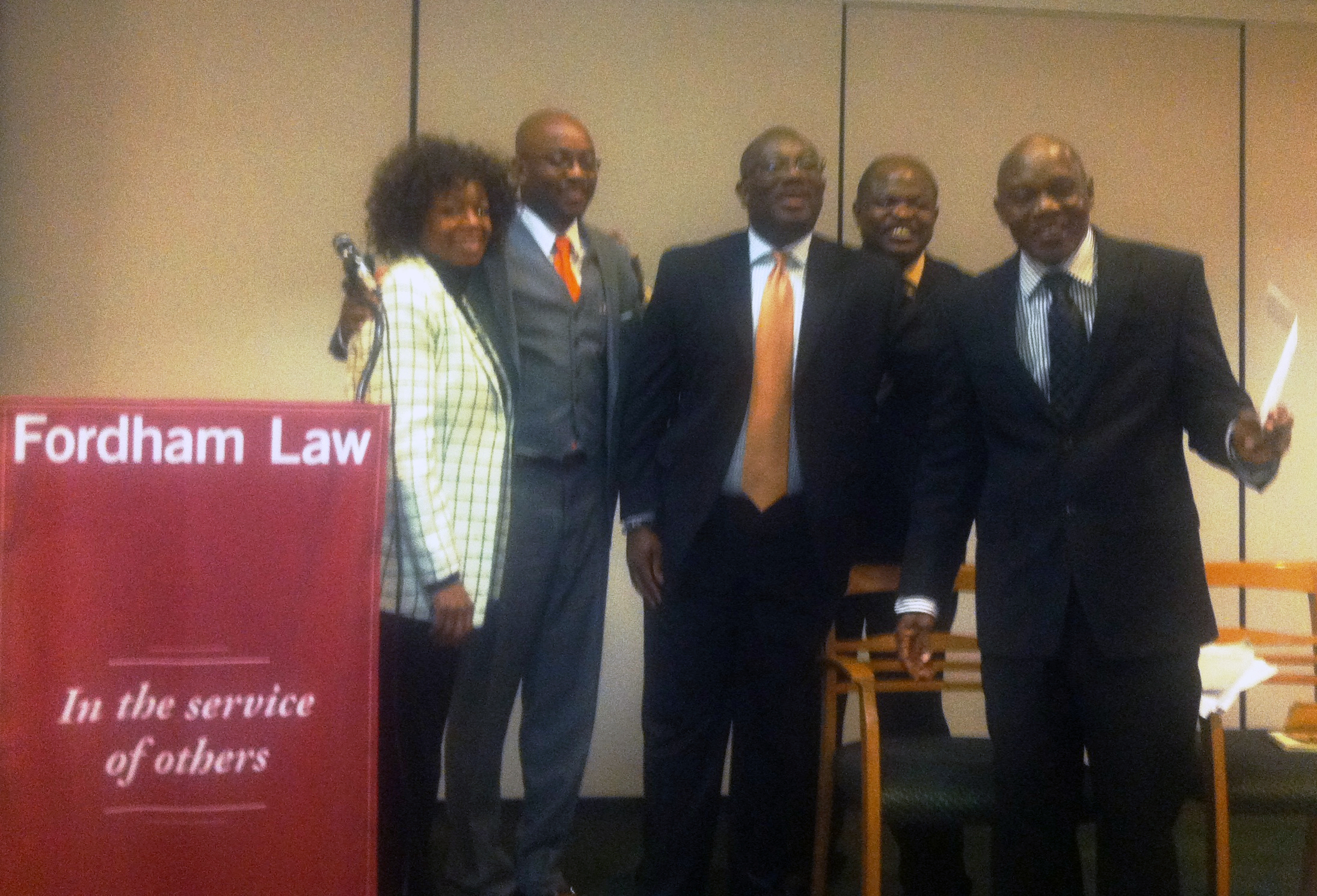https://www.leitnercenter.org/images/news/94.png' width="178">

On Thursday, February 21, 2013, Justice William Atuguba, Supreme Court Justice of  Ghana and Chairman of the Legal Aid Scheme, spoke to members of the Association of Ghanaian Lawyers of America (AGLA), Fordham Law School and the public about the current situation of legal aid in Ghana. The Legal Aid Scheme of Ghana provides free legal services to the poor and indigent in criminal and civil disputes. Outlining the history and development of the Legal Aid Scheme, Justice Atuguba addressed the issues preventing a greater provision of legal aid services in Ghana. Currently, only 14 government-employed lawyers serve the whole country of 24 million people. While suggestions for additional funding through fees paid by lawyers to the Ghana Bar Association or other donations from lawyers have been discussed, actual implementation of this additional funding has yet to be realized. A 2012 Constitutional Review Commission granted the Legal Aid Scheme independence from the Ministry of Justice, meaning that the Legal Aid Scheme will report directly to the government and will have direct control over its budget and it is hoped that this will open up funding. Further, in conjunction with Fordham law students in the International Law of Development in Africa Clinic, directed by Professor Paolo Galizzi, and law students from MountCrest University in Ghana, the Legal Aid Scheme is considering a pro bono initiative to promote a greater engagement with free legal services across the legal profession.
Ghana and Chairman of the Legal Aid Scheme, spoke to members of the Association of Ghanaian Lawyers of America (AGLA), Fordham Law School and the public about the current situation of legal aid in Ghana. The Legal Aid Scheme of Ghana provides free legal services to the poor and indigent in criminal and civil disputes. Outlining the history and development of the Legal Aid Scheme, Justice Atuguba addressed the issues preventing a greater provision of legal aid services in Ghana. Currently, only 14 government-employed lawyers serve the whole country of 24 million people. While suggestions for additional funding through fees paid by lawyers to the Ghana Bar Association or other donations from lawyers have been discussed, actual implementation of this additional funding has yet to be realized. A 2012 Constitutional Review Commission granted the Legal Aid Scheme independence from the Ministry of Justice, meaning that the Legal Aid Scheme will report directly to the government and will have direct control over its budget and it is hoped that this will open up funding. Further, in conjunction with Fordham law students in the International Law of Development in Africa Clinic, directed by Professor Paolo Galizzi, and law students from MountCrest University in Ghana, the Legal Aid Scheme is considering a pro bono initiative to promote a greater engagement with free legal services across the legal profession.
Thanking Justice Atuguba for the work that he has done to increase access to justice in Ghana, Kwaku Boafoh Agyeman, Esq., the President of AGLA, announced a commitment on behalf of its members to provide pro bono assistance to the Legal Aid Scheme. The evening ended with AGLA also generously donating $2,000 to support the work of the Legal Aid Scheme.
The International Law of Development in Africa Clinic, directed by Professor Paolo Galizzi, exposes students to the realities and challenges of development work in Africa. The clinic introduces students to the law and theory of international development as well as teaching practical skills such as project research and design, proposal drafting, and interview techniques. Applying what they learn in class, students partner with law students in Africa to design and develop their own small-scale, sustainable projects and travel to Africa to work with law professors, non-governmental organizations, and government and private actors on the ground to develop and implement their projects. The projects are supervised by Professors Jeanmarie Fenrich, Alena Herklotz and Emily Smith Ewing.





